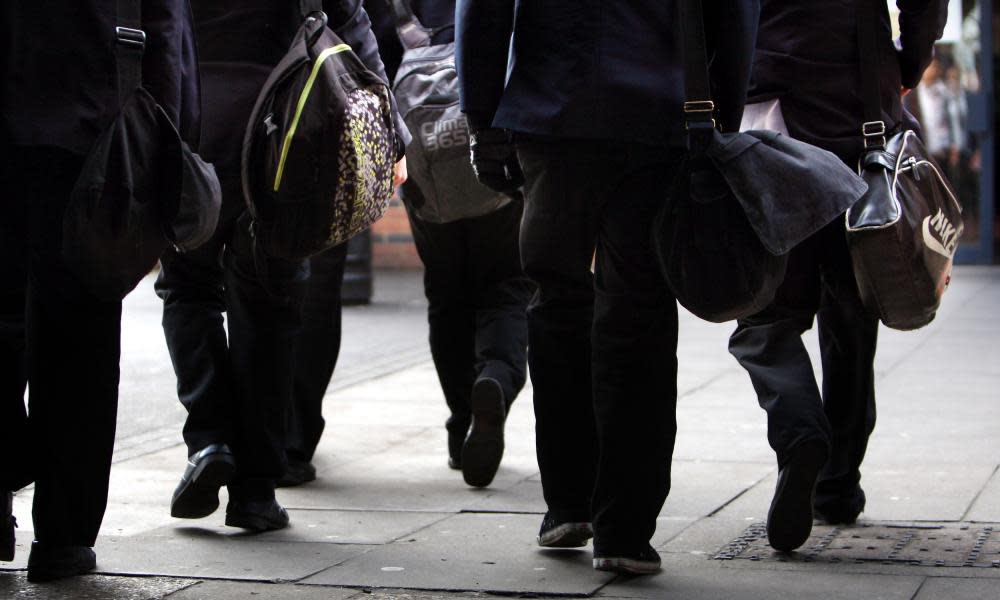No improvement in school attainment gap in England for 20 years, report says

The attainment gap between poorer pupils and their better-off class mates is just as large now as it was 20 years ago, according to a damning new report which says the coronavirus pandemic is likely to have increased the inequalities in education
The landmark study, based on research carried out for the Institute for Fiscal Studies (IFS) and funded by the Nuffield Foundation, found that disadvantaged pupils start school behind their better-off peers, and those inequalities persist through their school years and beyond – eventually having an impact on earnings.
The authors state there is overwhelming evidence that the education system in England leaves too many young people behind, and despite decades of policy focus, there has been little if any shift in the gaps in educational attainment between children from different backgrounds.
The report said: “Despite decades of policy attention, there has been virtually no change in the ‘disadvantage gap’ in GCSE attainment over the past 20 years. While GCSE attainment has been increasing over time, 16-year-olds who are eligible for free school meals are still around 27 percentage points less likely to earn good GCSEs than less disadvantaged peers.”
At the start of their educational journey, just 57% of English pupils eligible for free school meals reached a good level of development at the end of reception in 2019, compared with 74% of their better-off peers, the report notes.
Failure is “baked in” at an early age, the authors say. Fewer than half of disadvantaged children reached expected levels of attainment at the end of primary school, compared with nearly 70% of their better-off peers. Of those who do achieve the expected level, just 40% of disadvantaged pupils go on to receive good GCSEs in English and maths, compared with 60% of better-off students.
Perhaps the biggest failure of the education system, the report suggests, is that for those leaving school with poor GCSEs, there is a lack of a clear path and “second chances”, leaving millions disadvantaged throughout their lifetime.
The report finds the relationship between family background and attainment is not limited to the poorest, but educational performance improves as family income goes up. Just over 10% of young people in middle-earning families gained at least one A or A* grade at GCSE, compared to a third of pupils from the wealthiest tenth of families.
These inequalities lead to vast gaps in earning, the report says, pointing out that by the age of 40 the average UK employee with a degree earns twice as much as someone qualified to GCSE level or below.
“These challenges are set to become more acute,” the report concludes. “The Covid-19 pandemic put the education system under enormous strain, with significant learning loss overall and a huge increase in educational inequalities.
“Perhaps even more damaging in the longer term will be the social, emotional and behavioural impacts of missing out on classroom learning and formative experiences during the lockdowns.”
Imran Tahir, a research economist at IFS and an author of the report, said: “We can’t expect the education system to overcome all the differences between children from different family backgrounds. But the English system could do a lot better.
“If the government is to meet its mission to have 90% of pupils attaining the expected level at the end of primary school [as stated in its recent schools white paper], it needs to prioritise the education system and especially the disadvantaged pupils within it.”
Bridget Phillipson, the shadow education secretary, said: “Some 12 years of Conservative governments have utterly failed to tackle inequalities across the education system, which are letting down our children and holding back young people’s opportunities and life chances.
“200,000 primary schoolchildren do not have access to a good or outstanding school, teachers are leaving our schools in record numbers, GCSE grades among children on free school meals are going backwards. The Tories are messing about with school structures, not improving children’s outcomes.”
Geoff Barton, general secretary of the Association of School and College Leaders, added: “Government policy is in a rut of meaningless targets, empty rhetoric and pitiful levels of funding.
“We need to see investment in early years education, better support for schools which face the greatest challenges, funding for schools and post-16 education which matches the level of need, and a rethink of qualifications and curriculum so that they work well for all learners.”
A Department for Education spokesperson said: “Since 2011, we have narrowed the attainment gap between disadvantaged pupils and their peers at every stage of education up to the pandemic, and recent figures show that a record proportion of the most disadvantaged students are progressing to higher education.
“As part of our work to level up opportunities for all we have invested nearly £5bn to help young people to recover from the impact of the pandemic – with over 2m tutoring courses now started by the pupils who need them most – alongside an ambitious target for 90% of children to leave primary school at the expected standard in reading, writing and maths by 2030.”

 Yahoo Movies
Yahoo Movies 
